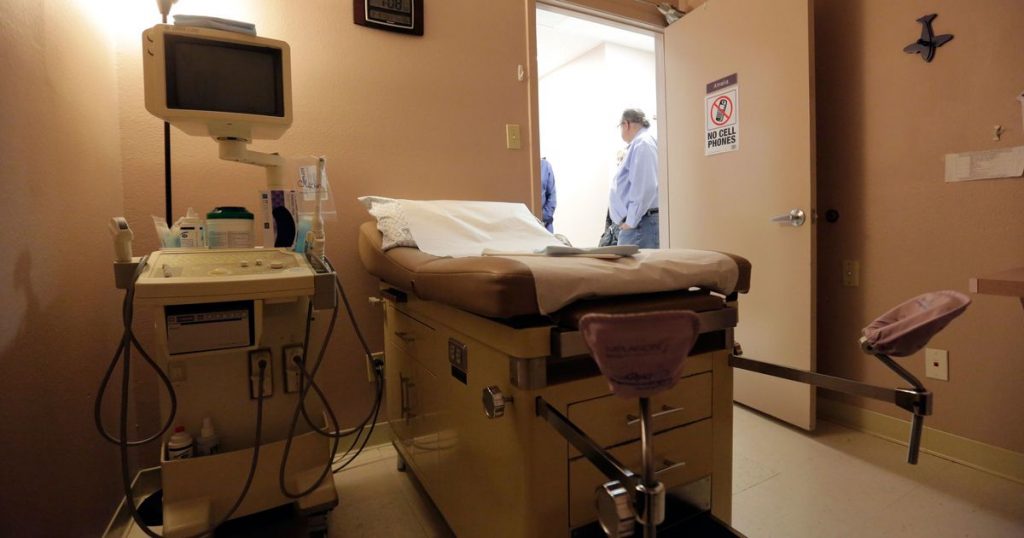Even as numerous Republican-governed states push for sweeping bans on abortion, there is a coinciding surge of concern in some Democratic-led states that options for reproductive healthcare are dwindling due to expansion of Catholic hospital networks.
These are states such as Oregon, Washington, California, New York and Connecticut, where abortion will remain legal despite the U.S. Supreme Court’s recent ruling overturning Roe v. Wade.
Concerns in these blue states pertain to such services as contraception, sterilization and certain procedures for handling pregnancy emergencies. These services are widely available at secular hospitals but generally forbidden, along with abortion, at Catholic facilities under the Ethical and Religious Directives set by the U.S. Conference of Catholic Bishops.
Read more:
Abortion ruling prompts variety of reactions from states
The differing perspectives on these services can clash when a Catholic hospital system seeks to acquire or merge with a non-sectarian hospital, as is happening now in northeastern Connecticut. State officials are assessing a bid by Catholic-run Covenant Health to merge with Day Kimball Healthcare, an independent, financially struggling hospital and healthcare system based in the town of Putnam.
“We need to ensure that any new ownership can provide a full range of care — including reproductive healthcare, family planning, gender-affirming care and end-of-life care,” said Connecticut Attorney General William Tong, a Democrat.
Lois Utley, a specialist in tracking hospital mergers, said her organization, Community Catalyst, has identified more than 20 municipalities in blue or purple states where the only acute care hospitals are Catholic.
“We are definitely sliding backwards in terms of comprehensive reproductive health,” Utley said. “Catholic systems are taking over many physician practices, urgent care centers, ambulatory care centers, and patients seeking contraception won’t be able to get it if their physician is now part of that system.”
Not a Modern Healthcare subscriber? Sign up today.
According to the Catholic Health Association, there are 654 Catholic hospitals in the U.S., including 299 with obstetric services. The CHA says more than one in seven U.S. hospital patients are cared for in a Catholic facility.
The CHA’s president, Sister Mary Haddad, said the Catholic hospitals provide a wide range of prenatal, obstetric and postnatal services while assisting in about 500,000 births annually.
“This commitment is rooted in our reverence for life, from conception to natural death,” Haddad said via email. “As a result, Catholic hospitals do not offer elective abortions.”
Protocols are different for dire emergencies when the mother “suffers from an urgent, life-threatening condition during pregnancy,” Haddad said. “Catholic health clinicians provide all medically indicated treatment even if it poses a threat to the unborn.”
This approach is now being mirrored in several states imposing bans that allow abortions only to save a mother’s life. There is concern that doctors governed by such bans — whether a state law or a Catholic directive — may endanger a pregnant woman’s health by withholding treatment as she begins to show ill effects from a pregnancy-related problem.
Read more:
Hospitals should perform needed emergency abortions, CMS says
Texas sues feds over emergency abortions guidance
In California, Democratic state Sen. Scott Wiener is among those warily monitoring the proliferation of Catholic healthcare providers, who operate 52 hospitals in his state.
The hospitals provide “superb care to a lot of people, including low-income communities,” Wiener said. But they “absolutely deny people access to reproductive healthcare as well as gender-affirming care (for transgender people).”
“It’s the bishop, not professional standards, that are dictating who can receive what healthcare,” Wiener said. “That is scary.”
Charles Camosy, professor of medical humanities at the Creighton University School of Medicine, says critics of the mergers fail to acknowledge a major benefit of Catholic healthcare expansion.
“These mergers take place because Catholic institutions are willing to take on the really hard places where others have failed to make money,” he said. “We should focus on what these institutions are doing in a positive way — stepping into the breach where virtually no one else wants to go, especially in rural areas.”
That argument has resonance in mostly rural northeast Connecticut, where Day Kimball serves an aging population of about 125,000.
Kyle Kramer, Day Kimball’s CEO, said the 104-bed hospital has been seeking a financial partner for more than seven years and would soon face “very serious issues” if it had to continue on its own.
Regarding the proposed merger, he said, “Change is always difficult.”
